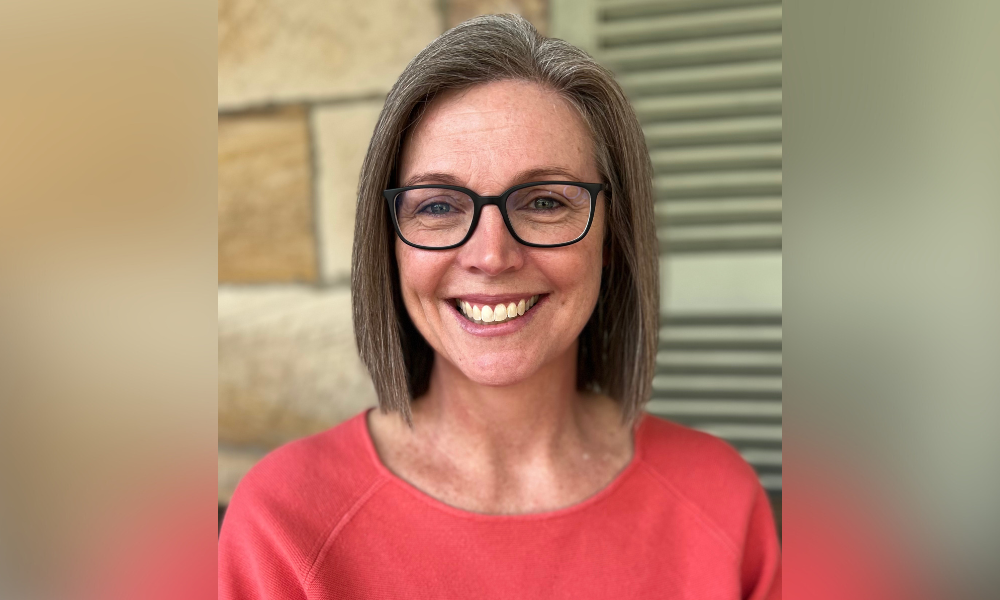
'I've seen only the positives come out of it,' says head of people and culture

Recently, the Allan Labor government announced that it is growing its lived and living experience mental health workforce.
Minister for Mental Health Ingrid Stitt congratulated the biggest graduating cohort yet from Victoria’s Peer Cadet Program, which provides a paid employment opportunity while students complete their education.
Peer workers are trained to use their lived or living experience of mental distress and recovery to support others who are going through similar experiences.
“We know there is a critical demand in our workforce for people with their own lived experience – this program is helping people get the skills and qualifications they need to help address that demand,” Stitt said.
Therese Coffey, Butterfly Foundation head of people and culture, understands the difficulty in helping people who suffer from eating disorders, which include binge eating disorder, bulimia nervosa and anorexia nervosa, along with body image concerns.
In an effort to establish the trust of its clients, the not-for-profit organisation targets applicants with lived experience of eating disorders when recruiting for peer-worker roles, she told HRD.
“We tend to attract people with a lived experience because they want to give back, and it enriches what we do as an organisation to have a higher cohort of people with lived experience,” Coffey said.
How are workers with lived experience different from the rest of us?
“They’re very passionate – we definitely find that,” Coffey said. “It’s an absolute honour to work in an organisation where you don’t need to worry about the level of engagement when it comes to the passion for the cause.”
Peer-worker roles include positions at Butterfly’s 13-bed hospital in Queensland, in recovery support services and in its Next Steps program for people who have come out of hospital.
“Peer workers are people who have recovered from an eating disorder, either themselves or as a carer,” Coffey said, adding they see the work as a chance to positively impact other people’s lives.
Applicants for peer-worker roles are required to have been recovered for two years.
“There may be instances where people come and work with us who may currently have an eating disorder, and we can’t discriminate against them – unless it’s for a peer-work role,” she said. “Sometimes people may disclose. We don’t require it, of course.”
When recruiting, the HR team makes sure those involved in the interviewing process are trained to deal sensitively around hearing about someone’s lived experience, should they want to share it.
“It’s about making sure that questions are related to the role,” Coffey said. “And when we’re hiring peer workers, we need to make sure we’re being sensitive, because the definition of recovery might be different from one person to another.”
Clinical and non-clinical staff have been trained in mental health first aid, she said, “so that if they are talking to a colleague or someone through a recruitment process, that they can feel confident in supporting that person and ensuring that person is getting the support they need.”
Organisations can’t just ignore mental health, and Coffey points to Butterfly’s work with the National Eating Disorders Collaboration in producing guidelines for workplaces, particularly around eating disorders.
“There are some great tips and support for employers around hiring staff who may have eating disorders or who have recovered from an eating disorder,” she said, things that employers who do not work in mental health may probably never think about. “It’s about making sure you have frameworks and support mechanisms in place,” she said.
Perfectionism is a common trait among people who suffer from eating disorders, and it might linger in some of the recovered applicants that Butterfly assesses and employs.
“It means that people will go above and beyond, but obviously we’ve got to be conscious of burnout,” she said. “Organisations need to be supportive around ensuring those people have the right supports to allow them to work in a healthy space.”
Workers with lived experience are an asset to the organisation for being acutely aware of triggers that threaten to creep into programs or communications to make sure they are not triggering to others.
“I’ve seen only the positives come out of it, in terms of the value and passion that someone can bring,” Coffey said.
“But it’s very important for our organisation to ensure we’ve got the right supports in place. Every HR professional needs to make sure supports are in place, whether you are working in a mental health organisation with lived experience or not.”
For support with eating disorders or body image concerns, call Butterfly National Helpline (1800 33 4673) or visit www.butterfly.org.au.